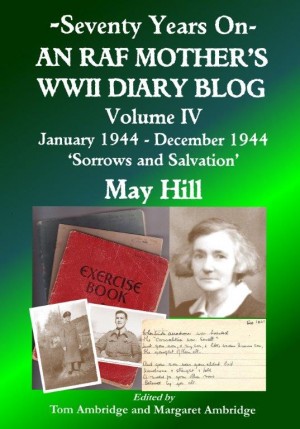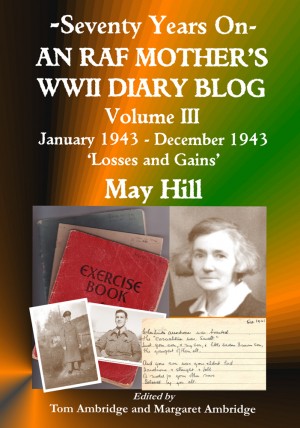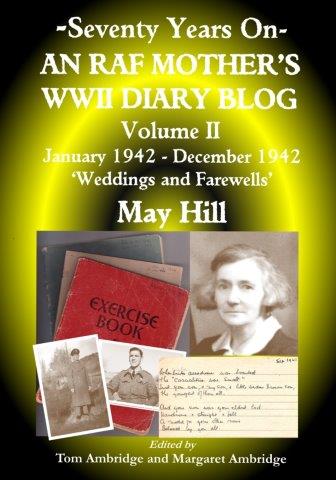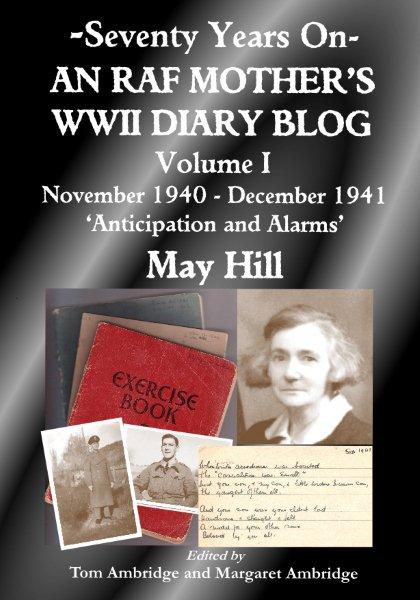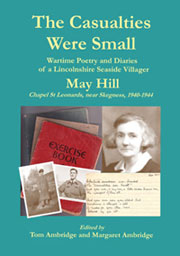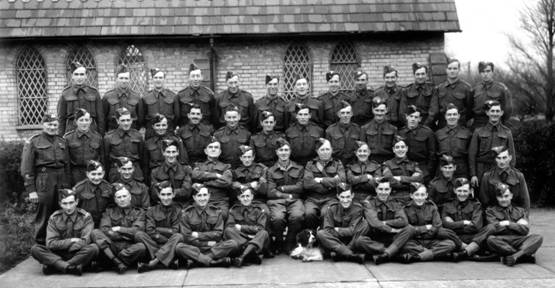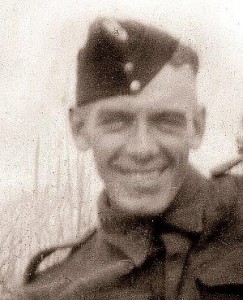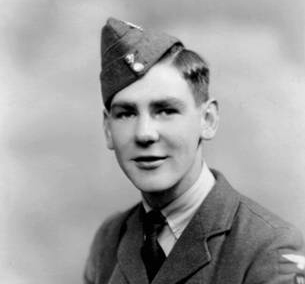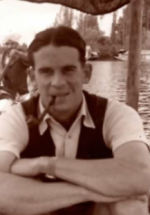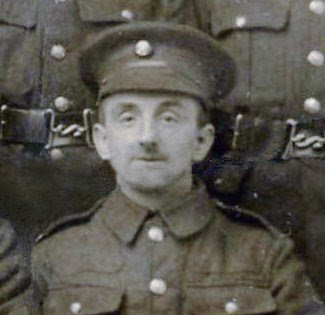Oh! Ye who clamour for the start of other fronts:
Do you not know? These days, they are the last our sons shall see,
Before they face the foe, and pay
With precious blood, their lives and all that makes life dear,
The price of liberty for us, who wait in fear.
Yet, scarcely fear, we trust in God and them.
Tho’ erring still in many ways,
Our aim is true and God is Lord of life and death.
He shall direct our path.
But those whose men must go, cling to them still,
And count these last few precious days as jewels one by one,
That soon shall be a memory, until eternity.
They slip so fast between our fingers and elude our grasp,
As elvers in a stream slip thro’, bound for the far Sargasso Sea.
Then hurry not the swiftly moving days of fate,
Too soon for us we hear them at the gate.
Several references were made in the Diaries anticipating the launch of the Second Front. The first was in 1942:
Sun. July 5 10.10. pm. [1942]
“…Well, the days are shortening now instead of lengthening tho’ it is hardly perceptible yet. I fear the worst winter of the war is creeping towards us now, but we may make a lot of headway before then, but if we are having a “second front” why, why, don’t we start while the weather is good. The icy winter weather aggravates the evils of war more I think than the summer tho’ the heat too is terrible…”
Then, a year later:
Sat 3. July [1943]
… I wish the war was over and Ron was home. There seems to be a lull just now like the calm that comes when we say the wind gathers strength for a harder blow. These sunny summer days are the last that many a lad will ever see, let us not be too hasty in wishing the second front would start. I fear that before another June comes round many hundreds will have gone…”
In January 1944 a number of entries, as May bcame increasingly concerned with the implications:
Wed. Jan. 5 7.30. am. [1944]
… Montgomery is in England to take charge of British Invasion Army under General Eisenhower, U.S.A. Gen. People are wishing second front would be started, but when I think of it, I think of the hundreds of boys for whom these days are the last they will see, and every day is one more for them before they pay the price for our peace and safety. Some of them go with heavy hearts, the first excitement of war is over and the grim bare bones of all its wickedness show thro’…”
Thur Jan. 13 1944 9.15. PM.
“…Papers are full of second front and invasion lore. The many new air-bases in Britain are ready for use, and are to be the invasion bases. There are such a lot within a few miles of us that I fear we may see more of the war than we have so far done. I am not looking forward to the start of second front. It might mean moving off the coast too…”
Friday January 14. 1944
“…I wonder what will have happened in this grim struggle before these few pages are filled… The second front looms ever nearer, then we shall feel the effects in this country, more than we have done since the “Battle of Britain” and how very little we knew of that down here just sheltered behind the sand-hills, while the tide of war went over only a few stray bombs that only damaged property, not people, fell round us…”
Again, in May 1944:
Sun May 7 7.45 P.M. [1944]
“’…Talk, talk, talk of Second front goes on and on. There is a lull in Italian fighting. Terrible bombing goes on in Germany…”
The month of the poem date was unclear. If it was 5th June 1944 it could have been prompted by a premonition of D-Day – the very next day, 6th June,* which was supposed to have been a closely guarded secret until the actual day. However, the poem might have been written six months earlier, coinciding with the Diary entry on 5th January.
*This link will become active on 6th June 2014.
The poem has been added to the poems collection on this site. It also appears in the book The Casualties Were Small which contains over twenty of May’s poems as well as selected diary extracts, including those which suggest the background to each poem, accompanied by many nostalgic photographs.
Have you read an introduction to May Hill & family (includes photographs) and explored ‘The Casualties Were Small’?

